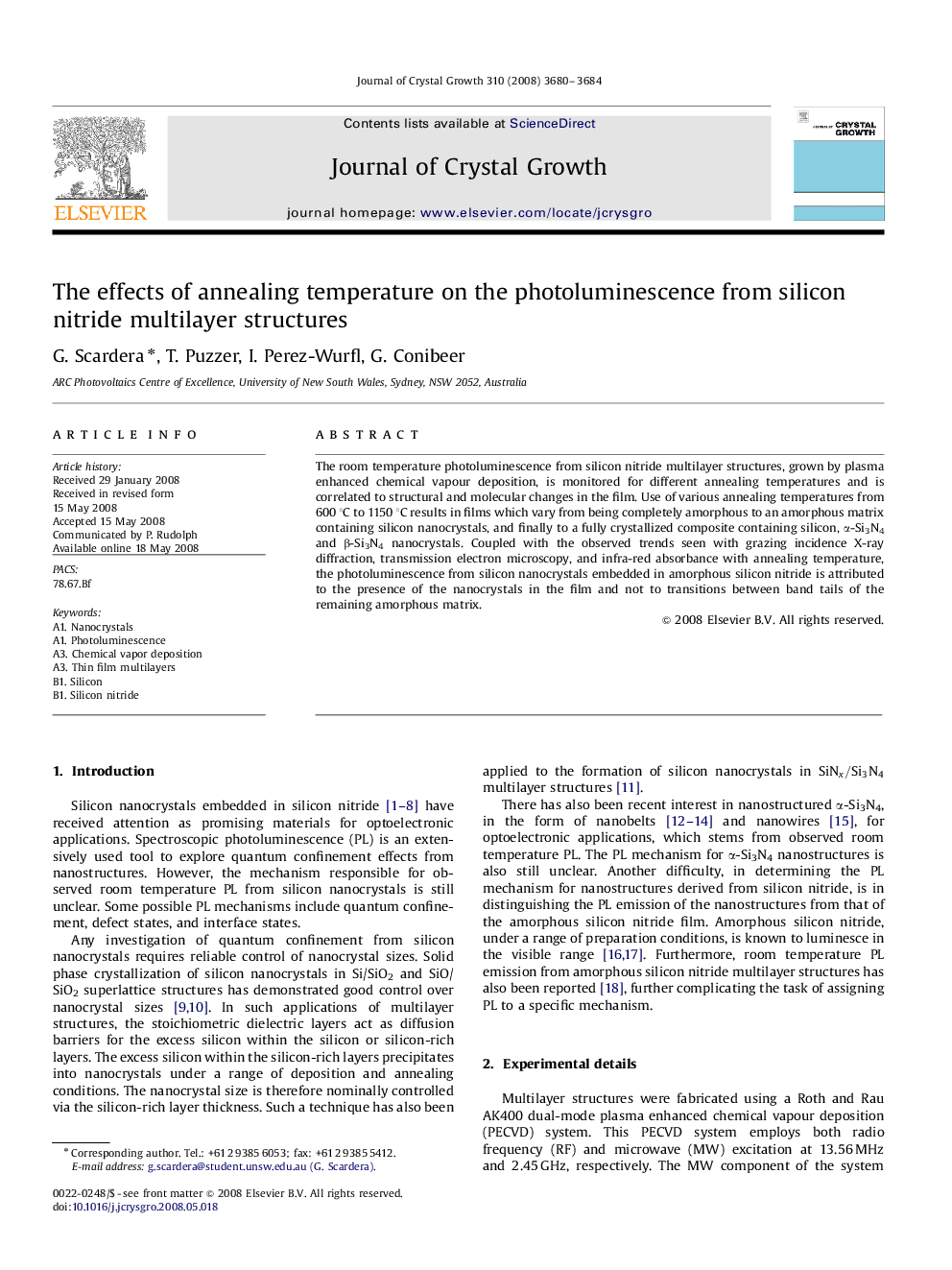| Article ID | Journal | Published Year | Pages | File Type |
|---|---|---|---|---|
| 1794360 | Journal of Crystal Growth | 2008 | 5 Pages |
The room temperature photoluminescence from silicon nitride multilayer structures, grown by plasma enhanced chemical vapour deposition, is monitored for different annealing temperatures and is correlated to structural and molecular changes in the film. Use of various annealing temperatures from 600 °C to 1150 °C results in films which vary from being completely amorphous to an amorphous matrix containing silicon nanocrystals, and finally to a fully crystallized composite containing silicon, αα-Si3N4 and ββ-Si3N4 nanocrystals. Coupled with the observed trends seen with grazing incidence X-ray diffraction, transmission electron microscopy, and infra-red absorbance with annealing temperature, the photoluminescence from silicon nanocrystals embedded in amorphous silicon nitride is attributed to the presence of the nanocrystals in the film and not to transitions between band tails of the remaining amorphous matrix.
